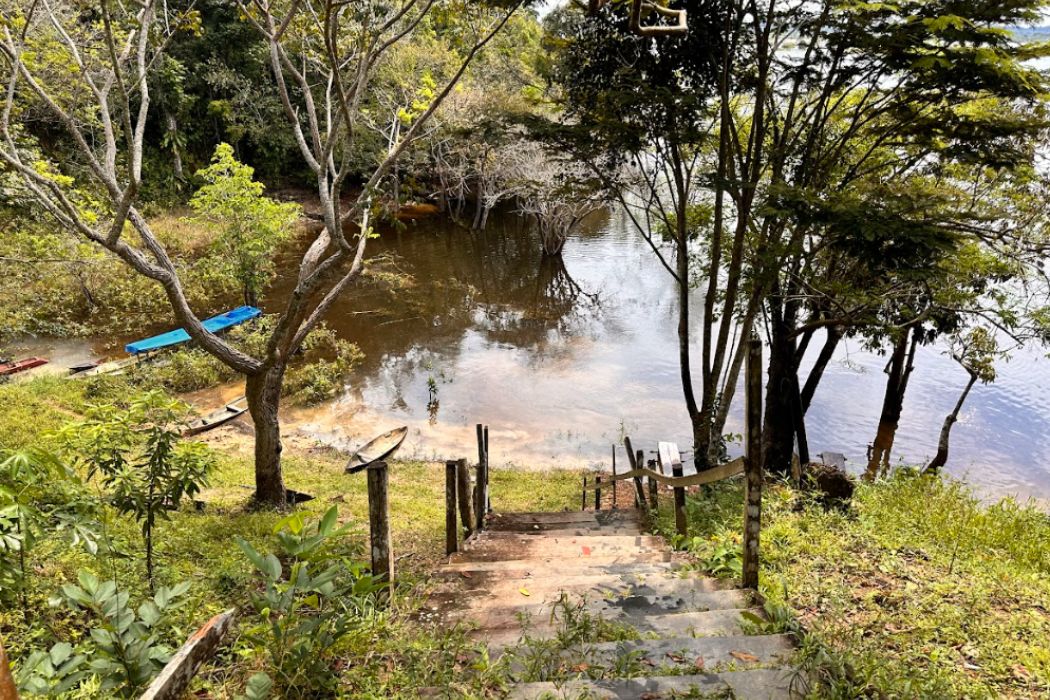
"Notice the ravens: they do not sow or reap; they have neither storehouse nor barn, yet God feeds them" (Luke 12:24)
Having returned from the CSTM ecotheology and justice trip, one of the lingering lessons in my life of prayer and discernment is what I learned about generosity and hospitality from communities we met in the Amazonas, Brazil. One experience was in the town of Sao Sebastiao, a community of about 70 families living on a plateau above the Amazon river banks, adjacent to the rainforest. Two other students and myself traveled to the town, and the three of us were greeted by a young man who was the leader of the community. He showed us a school, a parish church, the homes of the village teachers and his friends, community farming projects, a field of solar panels (which unfortunately were not working and the community did not have the resources to repair), and a pharmacy (which he explained lacked the funding and resources to provide the community all the medicine it required). While in the community, we also met children of all ages, and spent several hours of the afternoon playing cards, dominos, and volleyball with them.
Midway through the day, a few of our hosts in Sao Sebastiao prepared us a Cafezinho, a mid-morning coffee break with small refreshments, popular in Brazilian culture. As they sat and talked with us, our hosts made freshly-squeezed fruit juice, having gathered, peeled, cut, and juiced the citrus fruits that day. They also brought out black coffee with sugar, and provided manioc (cassava) grains, and other small fruits. We sat under the shade of big trees, and enjoyed the refreshments, which tasted delicious, and was a wonderful respite, especially given the heat and humidity of the day. It was a generous spread, especially given that the community did not have much money nor resources. People lived in wooden one or two room homes, and most of what was eaten was grown, harvested, or hunted through traditional, labor-intensive methods. The Cafezinho set-up which they shared with us as guests whom they had never before even met could not be taken for granted. It was a gesture of generosity and hospitality. They shared with us, not out of a place of abundance, but from a place of scarcity. I noticed they were not eating the refreshments themselves, but insisted that their guests first partook. Hospitality was so ingrained in their culture and lifestyle, and it would have been incredibly rude to decline, even from a well-intentioned place.
.jpg)
This experience, and others in the Amazon communities, has made me examine my own life and context. I think of how many times we in America fail to be generous with what we have, and most of us have far more abundance than our brothers and sisters living in communities like Sao Sebastiao. We fail to give what we have - whether that is resources, time, or presence - even when it is easy. I ask myself: where can I be generous in my life when it is hard, whether that is with my time, my talents, or my resources? In the Gospel, Jesus teaches us to trust God to provide for all our needs, not to hoard what we have, nor grasp tightly to what we think we need. My Amazon Cafezinho in Sao Sebastiao was a tangible reminder of the call to love generously and give lavishly to our neighbors, that we are called to trust in God who gives us every good thing.
- Kyle Desrosiers, M.T.S. student


